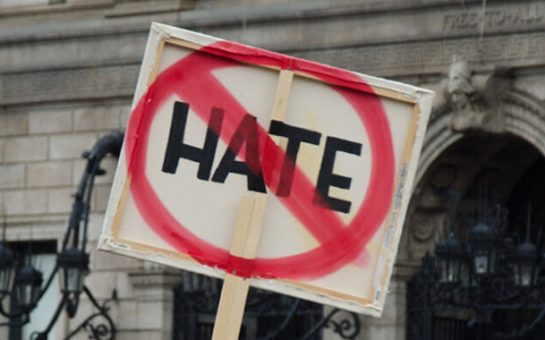Internet trolls need to be punished more harshly and anti-social behaviour orders (ASBOs) aren’t enough of a deterrent to prevent their behaviour, according to a criminal justice spokesman.
Earlier this month, MPs backed a move for social media users who persistently spread racial hatred online to be given ‘internet ASBOs’, blocking them from sites such as Twitter and Facebook under proposals to tackle rising levels of anti-semitism.
David Stobie, from the the criminal legal aid strategy division of the Ministry of Justice, spoke out on the issue of trolling and the damaging impact it can have on people’s lives.
“Personally I don’t think [ASBOs] are enough of a deterrent,” he told MM.
“Sometimes, I think the best thing would be for the police to turn up at the troll’s front door in front of their parents.
“Other times it’s just about them being humiliated – outed as a troll.
“ASBOs sometimes could be sufficient, but generally I’d say not – especially if some are wearing it as a badge of honour.
Stobie works in close contact with True Vision, a hate-crime reporting website based in the UK linked to local police forces such as Greater Manchester Police, where victims are also offered support.
He said that third-party systems helping to deal with trolls are expanding all the time and that the organisation had helped save many lives of victims who had become suicidal over the past few years.
“It certainly helps if victims know there is something they can do about it [trolling], so they feel a bit safer,” he said.
“Part of the problem is about getting the message to them.
“We could do all the work in the world to make society safer, but if the people that are under threat don’t know about it, then it’s pointless.”
David believed that a proposal to restrict the creation of social media accounts to personal identification would be a good move, but that some trolls would still find a way to access other peoples profiles.
He believed that handing tough penalties were a good way of sending out a message, citing the well-documented case of former Bolton midfielder Fabrice Muamba.
Muamba was targetted with racial abuse on Twitter after collapsing on the pitch during an FA Cup match at Tottenham Hotspur three years ago by Swansea University student Liam Stacey, who was sentenced to 56 days in jail.
“I think when a high-profile troll that gets caught out, it sends out a warning that this can happen to you,” David said.
“When that happens, people realise you can be fined, have your name put in the papers, or even jailed.
“These people need to know the difference between right and wrong and the damage that they do.”
Although trolling has become a growing epidemic on the internet, David disagreed that social media did more harm than good and highlighted its positive aspects.
“Social media is great,” he said.
“We couldn’t do our jobs with being able to refer to Google, and Facebook is good for keeping in touch and makes a lot of peoples lives better.
“It’s just about getting rid of those that abuse it and there are far too many.
“But there are so many people using it, how do you catch them all? It’s very difficult.”
Image courtesy of Tifotter, with thanks.
